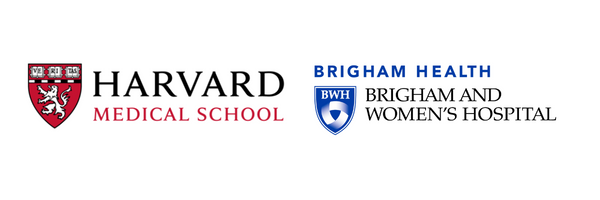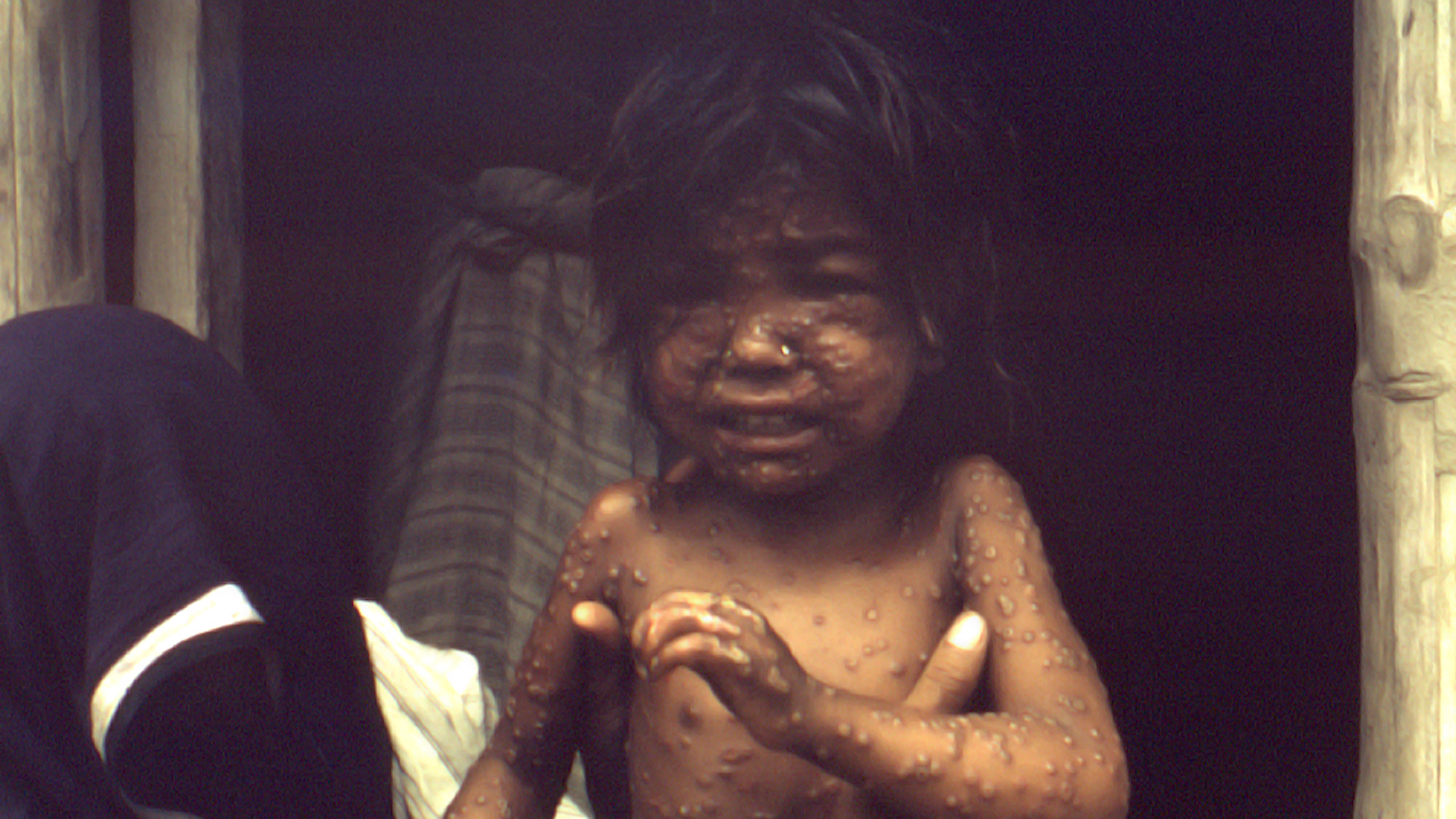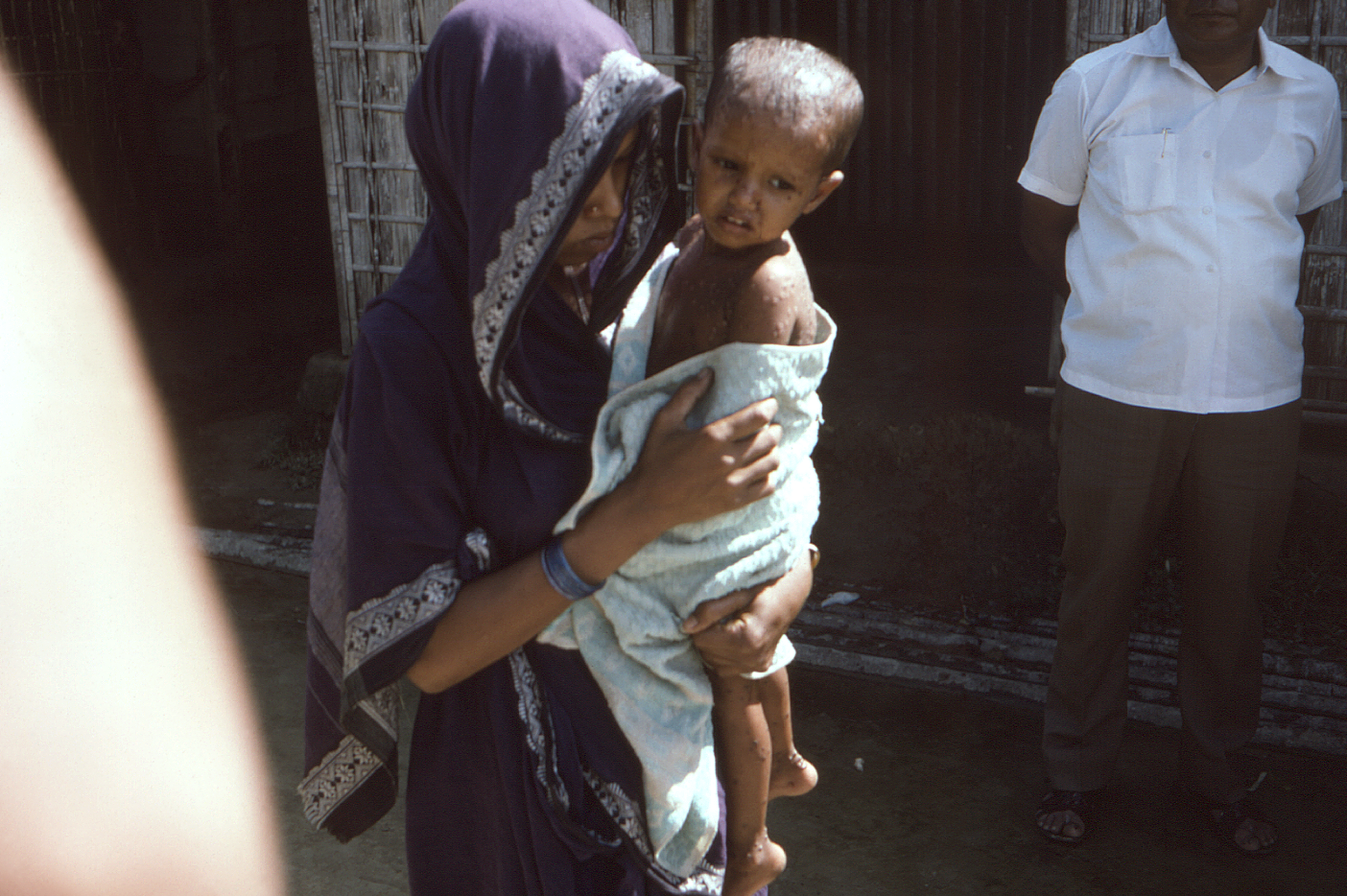GLOBAL HEALTH DELIVERY PROJECT AT HARVARD
CASE STUDY
Smallpox Eradication:
A Blueprint for Future Public Health Strategy
Smallpox was once the most feared disease on the planet, having maimed and killed more than half a billion people over centuries. Its defeat was a tribute to the power of public health, collaboration, good leadership, science, and a commitment to the last mile. This teaching case allows readers to see what it took to eradicate the disease, from the level of international policy and aid down to mobilization of the frontline workforce to understand important lessons from eradication that can be applied to current and future health challenges.
ABOUT THE CASE STUDY
While Becoming Better Ancestors highlights key public health lessons and their application to the challenges of today, this teaching case helps readers gain a deeper understanding of what it took to eradicate smallpox. It brings readers on a journey through history and allows them to stand in the shoes of some of public health’s most trusted leaders who faced the realities of day-to-day decision making on the ground. How did they grapple with decisions in the midst of limited data? When given conflicting information? With competing priorities? Dr. William Foege, the former director of the US Centers for Disease Control and Prevention (CDC) who many credit with eradicating smallpox, opens the door for readers to explore many of these questions. This case highlights both the human and technical aspects of public health – the importance of good relationships and trust as well as good vaccines, science, and strategy – how all aspects must come together to defeat a virus. It shares lessons learned that can be applied to COVID-19 and other disease areas and disciplines. Together with Becoming Better Ancestors, this case by the Global Health Delivery Project at Harvard helps make sense of the past so we are prepared for the global health threats of today and tomorrow.
India is a dense and diverse country, with a variety of social, political, and economic issues that complicate public health initiatives. As international endeavors to fight smallpox expanded in the 1960s, India continued to make up a disproportionate percentage of new cases. India’s eradication attempts in the 1960s fell short due to a variety of reasons, including difficult socio-political conditions, inadequate public health efforts, and limited support from the public. Cases remained high until a more organized and targeted strategy in the 1970s increased staffing, improved reporting, boosted vaccination rates, and expanded national and international resources. Despite some nationwide success, however, cases in certain states remained stubbornly high. After an intensified final campaign, India was declared free of smallpox in 1977.
This case study highlights the importance of a multipronged public health response that includes specific national and local strategies, a coordinated and centralized decision making structure, and an understanding of and clear communication with the people most affected. It shares a timely story of how eradication efforts must evolve so they remain responsive to the current state of a disease and provides lessons to the current public health workforce as they combat the COVID-19 pandemic and prepare for future threats.
About the Global Health Delivery Project at Harvard
The Global Health Delivery Project at Harvard (GHD) is an interdisciplinary collaboration between Harvard Business School, Harvard Medical School, and Brigham and Women’s Hospital. It investigates the management decisions behind disease treatment and prevention globally. These lessons are disseminated through multiple channels, including case studies, educational programs, and scholarly publications, that examine programmatic, organizational, and policy-related decisions that global health leaders face across various disease conditions and health care delivery systems in resource-limited settings. GHD’s overall mission is to support professionals dedicated to improving the delivery of value-based health care globally.
The collection of Cases in Global Health Delivery includes Harvard Business School-style teaching cases and accompanying teaching notes that are available at no cost to support undergraduate- or graduate-level courses and executive education. The 45+ cases capture real-life scenarios and allow students to explore how stakeholders made decisions, used public health principles, and implemented programs so they are prepared to apply lessons to their own contexts. The cases have been downloaded more than 10,000 times and are used in universities around the world to train the next generation of leaders.
GLOBAL HEALTH DELIVERY PROJECT
CASE STUDY TEAM
Julie Rosenberg, MPH, is Associate Director, Better Evidence at Ariadne Labs, a program working to help current and future health care providers access the latest clinical knowledge at the front lines of care delivery through digital tools. With the Director, she has led the scale-up strategy, research and program operations, leveraging in-kind donations and funding to maximize the impact of the program on patient outcomes. Julie is also Deputy Director of the Global Health Delivery Project at Harvard where she supports health care providers by studying what works in health care delivery and sharing those lessons through courseware and training. Julie has helped lead the development of over 45+ open-access teaching cases published through Harvard Business Publishing and supported the development of an online community of practice engaging 25,000+ global health providers for over a decade. Previously, Julie worked in clinical research at Emory University School of Medicine and in community-based nonprofit organizations in Latin America and the US. Julie is currently pursuing her DrPh in public health leadership. She has an MPH in epidemiology and global health from the Rollins School of Public Health at Emory University and a BA in anthropology from Harvard College.
Iman Ahmad served as a research assistant for The Global Health Delivery Project at Harvard University and an author of the Smallpox Eradication Case Study. Previously Iman assisted on a project led by Bridge to Health, Medical and Dental in limited-resourced settings. She is passionate about global health equity and social justice. Iman earned her HBSc in Global Health and Environmental Health from the University of Toronto and is currently completing an MSPH at Johns Hopkins Bloomberg School of Public Health in International Health Systems.
Dr. Rebecca Weintraub is the Founding Director of the Global Health Delivery Project at Harvard University and co-leads the Global Health Delivery Intensive. She is an assistant professor in the Department of Global Health and Social Medicine at Harvard Medical School and an associate physician at Brigham and Women's Hospital.
She launched the Better Evidence Program at Ariadne Labs to design, test, and scale strategies to equip the current and future health workforce with the latest evidence to improve health outcomes. In the midst of the pandemic, Dr. Weintraub expanded her portfolio to support public health decision makers to deliver COVID-19 vaccines. She advises public health departments, employers, HHS, and Ministries of Health. Her work has been published in the New England Journal of Medicine, Nature, Health Affairs, and Harvard Business Review and cited by the New York Times, BBC, Netflix, and NPR. She was named a Young Global Leader by the World Economic Forum and is a Health Innovator fellow of the Aspen Global Leadership Network. Dr. Weintraub graduated from Yale University, Stanford School of Medicine, and completed her medical training at Brigham and Women’s Hospital.









